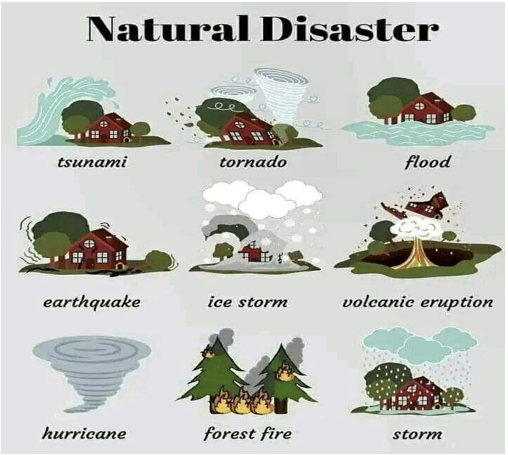I get asked every year by my friends and/or family what to do when disaster strikes. Having friends and family on the west coast, Midwest, and Southeast region of the United States this topic is often discussed. In this blog I will give some tips to assist you in being prepared as well. Also know that your business can still operate and even thrive after disaster strikes. For more information on this topic contact an Ibi Marketing representative, today. However, this blog will primarily focus on personal preparedness.
Preparing for a disaster involves taking steps to ensure that you and your family are safe, and that you have the resources you need to survive. The specific steps you should take will depend on the type of disaster you are preparing for, but there are some general guidelines that you can follow.
- Create an emergency plan. This should include a list of emergency contacts, a designated meeting place, and a plan for evacuation. Make sure that everyone in your household knows the plan and understands what to do in case of an emergency.
- Build an emergency kit. This should include non-perishable food, water, first aid supplies, a flashlight, a radio, and a way to charge your phone. You should also include any necessary medications and copies of important documents such as ID, insurance, and passport.
- Stay informed. Know the risks specific to your area, such as whether your area is prone to earthquakes, hurricanes, tornadoes, or flooding and stay updated on local weather and news during a crisis.
- Keep copies of important documents. Keep copies of important documents such as insurance policies, ID, and bank account information in a safe, secure place that is easily accessible in case of an emergency. You can also take a digital copy and store it in your phone or email.
- Be prepared to evacuate. Know the evacuation routes for your area and have a plan for how you will get to a safe place. Make sure you have a list of emergency shelters and know how to get there.
- Learn first aid. Knowing basic first aid skills can help you save lives, including your own, and help keep yourself and others calm and focused in the event of a crisis.
- Practice preparedness drills. Practice your emergency plan regularly with your family and friends, so everyone knows what to do in case of an emergency.
- Have a plan for communication. In the case of a disaster, phone lines may be down, and internet service may be spotty. Make sure you have a way to communicate with your loved ones if cell service is down.
- Be aware of specific needs for your loved ones. Be prepared for the specific needs of family members such as infants, elderly, and disabled, as well as pets. Make sure you have supplies for them and a plan for their evacuation.
- Create an emergency contact list. Make a list of emergency contacts and phone numbers, including family members, friends, neighbors, and local emergency services. Keep this list in a safe, accessible place in case you need to contact them during an emergency.
I feel an emergency kit is one of the most important items mentioned. For more clarity I will go into more detail. Remember each individual and family has different needs and should be taken into consideration.
- Water: A minimum of one gallon of water per person per day for at least three days for drinking and sanitation
- Non-perishable food: At least a three-day supply of non-perishable food that does not require cooking or refrigeration.
- First aid kit: A basic first aid kit that includes bandages, gauze, antiseptic wipes, and over-the-counter medications such as pain relievers and allergy medicine.
- Flashlight and extra batteries: A hand-crank or battery-powered flashlight, and extra batteries.
- Weather radio: A battery or hand-crank powered radio, to stay informed about weather and other important news during an emergency.
- Multi-purpose tool: A multi-purpose tool that includes a knife, pliers, can opener, and other useful tools.
- Personal hygiene items: Basic personal hygiene items such as soap, toothpaste, and feminine hygiene products.
- Warm clothing and blankets: A warm blanket and extra clothing to keep you warm in case of a power outage or other emergency.
- Cash: A small amount of cash in case banks and ATMs are closed.
- Important documents: Copies of important documents such as insurance policies, identification, and bank account information, stored in a waterproof and portable container.
Some other recommended items to consider including in your emergency kit are:
- Emergency whistle and signaling device to call for help.
- Dust mask or bandanas to filter contaminated air.
- Moist towelettes and garbage bags for personal sanitation
- Wrench or pliers to turn off utilities.
- Manual can opener for food
- Local maps and compass
In summary, preparing for a disaster requires planning and preparation. By creating an emergency plan, building an emergency kit, staying informed, keeping copies of important documents, being prepared to evacuate, learning first aid, practicing preparedness drills, having a plan for communication, being aware of specific needs, and creating an emergency contact list, you can help ensure that you and your family are safe and prepared in the event of a disaster.

